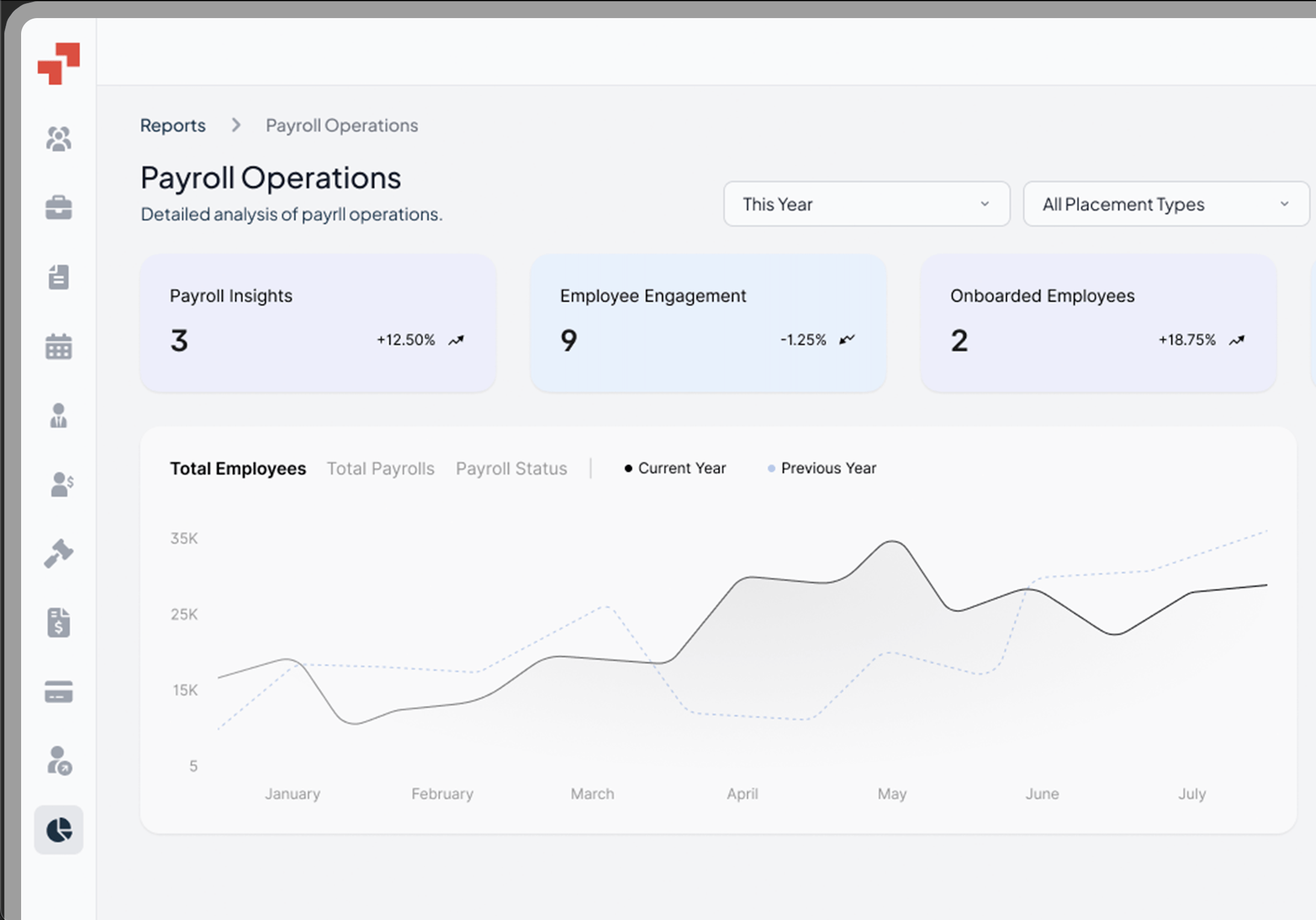TABLE OF CONTENTS
Hey there, independent contractors and self-employed pros! You’re out there hustling and grinding, making your own rules—but are you taking full advantage of the write off rules for independent contractors?
Here’s the deal: if you’re a 1099 contractor, sole proprietor, or any self-employed worker, tons of your business expenses are tax-deductible. And who doesn’t love cutting down that tax bill? These deductions, aka write offs, get subtracted from your taxable income, lowering the amount you owe to the IRS. While a write-off won’t put the exact amount back in your pocket, it’ll definitely shrink the check you send Uncle Sam.
So, what can you write off as a 1099 contractor? How do you maximize your savings and keep more of your hard-earned cash? Stick with me, because I’m about to break down everything you need to know about tax write offs for independent contractors in 2026. These tips could save you big bucks—maybe even thousands. Ready?
Disclaimer: This article is for informational purposes only and isn’t tax advice. For the best guidance, consult a tax advisor or a CPA
What Taxes Do Independent Contractors Pay in the US?
If you’re an independent contractor or freelancer, you’re probably asking: “What taxes do I actually have to pay?” Great question. As a self-employed worker, you’ve got a couple of extra taxes compared to your 9-to-5 friends.
Here’s the breakdown:
- Income tax: This is the tax we all know and love (or hate!). It’s based on how much business income you earn and is paid directly to the IRS and, in many cases, your state.
- Self-employment taxes: Unlike traditional employees whose Social Security and Medicare taxes are automatically taken out of their paychecks, you’ve got to handle this one yourself. Self-employment taxes combine Social Security and Medicare and currently stand at 15.3% of your earnings or net income. Yep, you pay both the employee and employer portion of these taxes.
But hey, the silver lining? You’ve got tax deductions working in your favour. As a self-employed worker, you can claim deductions on a bunch of expenses that qualify as business costs. This is one of the biggest perks of being your own boss—reducing your tax bill through contractor deductions!
16 Tax Write offs for Independent Contractors: A Detailed Breakdown
Here’s a rundown of some of the most common tax breaks that independent contractors like you can claim.
Below, we’ve listed some of the top 1099 deductions that every self-employed worker should know about.
You’ll also see where to claim these expenses on your tax forms. Remember, this list isn’t set in stone—tax laws change, so it’s always a good idea to consult a tax pro and stay updated via the IRS Self-Employed Individuals Tax Center.
1. Home Office Deduction:
If you are running your business from home, you’ve got a great tax benefit coming your way: the home office deduction. The IRS allows you to deduct a portion of your mortgage, rent, utilities, and more—just make sure your home office space is used exclusively for business.
Here are two ways to calculate your home office write-offs:
- Standard Method: Deduct the percentage of your home’s square footage used for business.
- Simplified Method: Claim $5 per square foot of office space (up to 300 square feet) for a maximum deduction of $1,500 per year.
Pro tip: Keep your workspace strictly for business use—your kitchen table won’t cut it.
How to Claim It?
Fill out IRS Form 8829 (Expenses for Business Use of Your Home) and attach it to your Schedule C. Record the home office deduction on Line 30 of your Schedule C.
Office Expenses: Don’t forget that office supplies, furniture, and equipment repairs can also be deducted. Record these on Lines 18-27 of your Schedule C.
For more detailed information, check out IRS Publication 587 on the business use of your home.
2. Vehicle and Travel Expenses:
If you’re driving for work—whether it’s meeting clients, visiting job sites, or making deliveries—you’ve got some sweet deductions coming your way. The IRS gives you two options:
- Standard Mileage Rate: The IRS sets a new standard mileage rate every year that you can record to figure out your deduction. In 2026, the rate is $0.70 cents per mile.
- Actual Vehicle Expenses: You can also deduct gas, maintenance, insurance, and more.
Pro tip: Keep a detailed log of your miles using apps like MileIQ—it makes life way easier!
Travel Expenses:
On top of mileage, you can also deduct other business travel expenses. Just make sure the trip is for business, and remember—no luxury splurges like that first-class flight!
What can you write off as a 1099 contractor when traveling?
- Flight, train, or bus tickets
- Rental cars, tolls, and parking fees
- Hotel stays and baggage fees
- Meals during the trip (up to 50%)
Record your travel expenses on Line 24 of your Schedule C.
For more details, check out IRS Publication 463 on Travel, Gift, and Car Expenses.
3. Equipment and Supplies: Keep Every Receipt!
From laptops to office chairs, the tools you buy for your business are tax-deductible. Even everyday office supplies like pens and printer paper qualify. Got a big purchase like a computer? You’ve got options:
- Immediate Deduction: Use Section 179 to deduct the entire cost right away.
- Depreciation: Spread out the cost over several years, accounting for wear and tear.
Equipment Depreciation: What’s It About?
If your equipment lasts more than a year, the IRS lets you depreciate it over time. That means you can write off part of its value every year as it loses worth due to wear, tear, or obsolescence.
For example, your laptop’s value decreases over time, and you can deduct that loss. Depreciation can get tricky, though—consider getting help from a CPA to figure out the best approach.
Pro Tip: The IRS requires that the equipment:
- Is something you own,
- Is used for business,
- Will become obsolete,
- And lasts over a year.
Record depreciation on Line 13 of your Schedule C.
For more details, check out IRS Publication 946 on How to Depreciate Property.
4. Marketing and Advertising:
Promoting your business? Whether it’s running a Facebook ad campaign, designing a website, or printing business cards, these marketing costs are fully deductible. Yes, you can write off all those digital ads, SEO efforts, and even branded swag!
Advertising Costs You Can Deduct
You can claim a 100% tax deduction on reasonable advertising expenses. This covers both `online and offline marketing efforts, including:
- Facebook, Google Ads, and other online ads
- TV commercials and radio spots
- Mail fliers, billboards, and other print ads
- Business cards, branded merchandise, and trade show promos
You can even deduct fees for PR agencies or freelancers helping with your marketing. Just remember, political ads are off-limits for deductions.
Pro Tip: Even ads promoting charitable giving with your company’s name on them are deductible.
Record your advertising expenses on Line 8 of your Schedule C.
5. Health and Business Insurance:
Whether you’re paying for health insurance for yourself or safeguarding your business with liability or car insurance, you can lower your taxable income with these deductions.
What’s Deductible?
- Health Insurance Premiums: Deduct premiums for health, dental, and long-term care for yourself, your spouse, and dependents (up to age 26). Just remember, if you’re eligible for health coverage through another job (like your spouse’s employer), you can’t claim this deduction.
- Business Insurance Premiums: Deduct premiums for fire, credit, business liability, and car insurance (if used for business).
Pro Tip: Double-check that you’re not eligible for an employer-sponsored plan before claiming your health insurance deduction!
Paperwork: Record health insurance costs on Line 17 of your Schedule 1 and business insurance expenses on Line 15 of your Schedule C.
For more details, check out IRS Publication 535 on the Self-Employed Health Insurance Deduction.
6. Retirement Contributions:
As a self-employed individual, contributing to your retirement accounts like a SEP IRA, Solo 401(k), or SIMPLE IRA is a savvy move. Not only are you setting yourself up for a comfy retirement, but you’re also slashing your taxable income in the process. Talk about a double win!
What Can You Deduct?
Contributions to retirement accounts, including:
- 401(k)s
- SEP IRAs
- SIMPLE IRAs
Pro Tip: If you have employees and sponsor retirement plans, you can also deduct those costs. However, your own contributions to a SEP or IRA aren’t directly deductible but should be reported on your Schedule 1.
Paperwork: Record your retirement contribution expenses on Line 19 of your Schedule C
7. Internet and Phone Bills:
Running your business without the internet or a phone? Not possible! Thankfully, the IRS allows you to deduct a portion of these bills if they’re used for business purposes.
What Can You Deduct?
- Phone Bills: If you’ve got a phone strictly for work, you can fully deduct that line. If you’re using one phone for both personal and business use, just calculate the percentage that applies to business and write off that part.
- Internet Bills: Similar rules apply here—deduct the portion of your internet bill used for business. Have a website? You can also write off hosting and maintenance costs.
Pro Tip: Keep personal use separate from business expenses, when tracking these expenses.
How to Claim It:
- Record cell phone expenses under Part V of your Schedule C.
- Record internet expenses in the utilities section on Line 25.
8. Interest Expenses: Are You Making the Most of Your Loans?
If you’re financing your business through loans, don’t forget you can write off that interest! Whether it’s from business credit cards, equipment loans, or lines of credit, those interest payments can help lighten your tax load.
What’s Deductible?
- Interest from business loans, including credit cards and equipment financing.
- Remember: If you take out a loan for both business and personal use, you can only deduct the interest related to the business portion. So, keep track of where your money is going!
Pro Tip: While you can deduct interest, it’s always a smart move to pay off your debts in full ASAP instead of counting on write-offs to save you.
Paperwork: Record your interest expenses on Line 16 of your Schedule C.
For more details, check out IRS guidelines on Interest Expenses to maximize your deductions.
9. Commissions and Fees:
Did you know that all commissions and fees paid to non-employees for sales and marketing purposes are totally tax-deductible? This includes payments to sales reps or fees from platforms like Amazon, Etsy, or eBay.
What’s Deductible?
- Commissions paid to non-employees
- Seller fees from marketplace channels (Amazon, Etsy, eBay, etc.)
Pro tip: If you pay someone more than $600 in a tax year, you’ll need to issue them a Form 1099-NEC.
Paperwork: Record your commissions and fees on Line 10 of your Schedule C.
10. Contract Labor:
If you’re bringing in independent contractors to help with your business—whether it’s a designer for a brochure or a web developer for your website—you can deduct their fees. It’s another excellent way to reduce your tax bill!
What’s Deductible?
- Payments to freelancers or independent contractors for business services
- If you pay more than $600 to a contractor in a tax year, make sure to complete a Form 1099-NEC for them.
Paperwork: Record contract labor expenses on Line 11 of your Schedule C.
11. Professional Services:
Hiring tax advisors, lawyers, or accountants? Good news—those fees are also tax-deductible! If you’ve hired someone to help with your business taxes (like preparing Schedule C), you can write off those expenses, too. Just keep in mind that this applies to business-related services only—not your personal tax return.
What’s Deductible?
- Fees for legal, accounting, and tax preparation services related to your business
Paperwork: Record legal and professional service expenses on Line 17 of your Schedule C.
12. Meals:
Whether you’re grabbing lunch with a client or dining during a business trip, you can deduct 50% of your business-related meal expenses. It’s a tasty way to cut down your tax bill!
What’s Deductible?
- Client lunches or dinners
- Meals during business trips
- Food at conferences
- Catering for promotional events
You have two options here:
- Deduct 50% of the actual cost (with a receipt), or
- Use the standard meal allowance based on federal per diem rates.
Paperwork: Record your meals under travel expenses on Line 24 of your Schedule C
13. Business Licenses and Taxes:
Running a legit business often means paying for licenses, certifications, and regulatory taxes—but the good news is, these costs are tax-deductible! Whether it’s incorporation fees, small business licenses, or industry-specific certifications, you can write them off.
What’s Deductible?
- Business Licenses: Need a special certification or license (like a real estate license)? You can deduct the cost.
- Regulatory Taxes: If your business has to pay industry-specific taxes, you can deduct those, too.
- Self-Employment Tax Deduction: You can claim half of the self-employment tax you pay on your self-employment income.
Pro Tip: Don’t forget to claim those self-employment taxes! Complete Schedule SE and record half of your calculated tax on Line 15 of your Schedule 1.
Paperwork: Record your business license and tax expenses on Line 23 of your Schedule C.
14. Business Setup and Startup Costs:
Launching a new business can come with a lot of upfront costs, but here’s the good news—you can deduct up to $5,000 in startup costs in your first year! Whether it’s for market research, advertising, or even consultant fees, these expenses can help lower your tax bill.
What’s Deductible?
- Initial Costs: Market research, advertising, hiring consultants, and even legal fees like setting up an LLC.
- If your total startup costs exceed $50,000, the amount you can deduct starts to reduce. Larger amounts can be amortized (spread out) over several years.
Pro Tip: Keep careful track of these costs early on—it makes the deduction process much easier!
Paperwork: Record your startup expenses under Part V (Other Expenses) of your Schedule C
15. Education Expenses:
Continuing your professional education can do more than just sharpen your skills—it can lower your tax bill, too! Whether you’re attending webinars, purchasing business books, or subscribing to professional publications, you can deduct these costs if they’re related to your current line of work.
What’s Deductible?
- Webinars and online courses to enhance your skills
- Textbooks or business-related publications
- Tuition expenses for courses directly tied to your current business (you may also qualify for an Education Credit)
Pro tip: You can’t deduct educational expenses if they’re for a completely new career path outside your current work.
Paperwork: Record your education expenses under Part V (Other Expenses) of your Schedule C.
For more details, check out Topic No. 513 on Work-Related Education Expenses.
16. Dues and Publications: Staying Informed and Connected? Deduct It!
As a contractor, staying up to date with industry trends is crucial—and the good news is that trade magazines, journals, and professional memberships related to your business are tax-deductible. Whether you’re a web designer subscribing to a graphic arts journal or a member of a professional organization, those fees can lower your tax bill.
What’s Deductible according to the IRS?
- Trade magazines or industry journals relevant to your business
- Fees for memberships in business leagues, chambers of commerce, or professional organizations (e.g., bar associations, real estate boards)
Note: You can’t deduct fees for recreational clubs (sorry, no country clubs!).
Paperwork: Record your dues and publications expenses under Part V (Other Expenses) of your Schedule C.
Final Tips for Maximising Tax Deductions as Independent Contractor
Navigating tax deductions for 1099 contractors or self-employed workers can be tricky, but with the right approach, you can significantly reduce your tax burden. Here are some essential tips to keep in mind:
1. Keep Business and Personal Expenses Separate: One golden rule for effective bookkeeping is separating business and personal expenses. It may seem like a hassle at first, but having dedicated credit cards or bank accounts for business use makes tracking your deductible expenses much easier. Remember: Only business-related expenses qualify for tax breaks for independent contractors!
2. Keep Accurate Records:1099 Deductions become much easier to claim when you maintain proper records. Store receipts, invoices, and even mileage logs for any business-related trips. For expenses like the home office deduction, keep clear records of your office dimensions to calculate the deduction accurately.
3. Ask Yourself: Is This an Ordinary and Necessary Business Expense?Before counting on any independent contractor tax benefits, ask yourself, “Is this expense ordinary and necessary for my line of work?” According to the IRS, ordinary expenses are commonly accepted in your field, and necessary expenses are helpful and appropriate for your business. Stick to this principle to avoid disallowed deductions.
4. Stay on Top of Paperwork and Deadlines: If you earned more than $600 from a client, they’ll issue a Form 1099-NEC by the end of January. Make sure you’re ready to file this paperwork promptly, as it helps determine your gross income for the year.
Conclusion: Don’t Miss Out on These Tax Write-Offs
Now that you’re familiar with the write offs rules for independent contractors, it’s clear that claiming tax deductions is one of the biggest financial advantages you have. From home office deductions to health insurance premiums, knowing what you can write off as a 1099 contractor will save you big when tax season hits.
Ready to take the hassle out of managing your payments and taxes? Pamgro helps independent contractors and self-employed workers manage payroll and stay compliant, all while letting you focus on what really matters—growing your business.
Say Goodbye to Tax Headaches—PamGro Makes It Easy
Pamgro offers seamless onboarding, global payroll across 150+ countries, and expert guidance on compliance, taxes, and benefits. Whether you’re managing your own journey as an independent contractor or expanding your business globally, Pamgro makes the process smooth and stress-free.
Pro Tip: Want to simplify your workflow and maximize your tax savings? Click here to partner with Pamgro and start optimizing your contractor management journey today!
Payroll Solutions Unrivalled since 15 Years

FAQs
1. What can I write off as an independent contractor?
You can write off business-related expenses such as home office, mileage, equipment, professional services, and more.
2. Are health insurance premiums deductible for independent contractors?
Yes, if you’re paying for your own health insurance, you can deduct the premiums for yourself and your dependents.
3. What can I write off as an independent contractor?
Yes, business-related travel expenses such as airfare, lodging, and meals are deductible.
4. What is the home office deduction, and do I qualify?
The home office deduction allows you to claim a portion of your home expenses if you use part of your home exclusively for business.
5. Can I deduct personal expenses as a business expense?
No, only business-related expenses are deductible. You should keep personal, and business finances separate to avoid confusion during tax filing.
6. What records should I keep to prove my deductions?
You should maintain receipts, invoices, mileage logs, and any other documentation that clearly shows the business purpose of each expense.
7. What happens if I don’t receive a Form 1099 from a client?
Even if a client doesn’t send you a Form 1099, you are still responsible for reporting the income you earned from them. Keep your own records to ensure accurate reporting.
8. Should I consult a tax professional?
Why worry about the complexities of tax deductions and compliance when Pamgro has your back? With Pamgro, you can count on seamless payroll management, global tax compliance, and expert support—all in one platform.
Hire, Classify, and Pay Contractors - All in One Platform


Mukul Dixit is a Growth Marketing Associate with 7+ years of experience creating impactful content in Innovative Tech, SaaS, and HR. A curious explorer at heart, he’s always on the lookout for new cultures to experience, fresh music to vibe, and innovative business ideas to dive. Passionate about entrepreneurship and digital marketing, Mukul brings a creative edge to everything he does.








